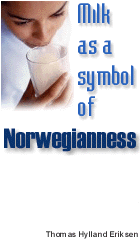|
|
 Year in Review 2001: world-affairs
Year in Review 2001: world-affairs
|
Area: 323,758 sq km (125,004 sq mi) Population (2000 est.): 4,487,000 Capital: Oslo Chief of state: King Harald V Head of government: Prime Ministers Kjell Magne Bondevik and, from March 17, Jens Stoltenberg
On March 10, 2000, Prime Minister Kjell Magne Bondevik officially resigned from office, one day after his government lost a vote of confidence in Parliament. Bondevik and his supporters wanted to delay the construction of Norway's first natural gas-fired power plants until new technology could be developed that would reduce air pollution. The opposition, however, favoured immediate construction and won the vote 81–71. One week later Jens Stoltenberg of the Norwegian Labour Party was named the new prime minister.
After some months of weaker performance in 1999, Norway resumed its economic growth in 2000. Gross national product increased about 3%; the unemployment rate stabilized at about 3.2%; and prices of consumer goods rose by 3%. Wage negotiations resulted in an average rise of 3.5%. In two public sectors (teachers, nurses) the result was a 5% increase, after government intervention.
Prices in the global oil market influenced the Norwegian economy and political life in a dramatic way. The spot price per barrel of Brent Blend rose from approximately $25 before midsummer to well above $30 in the autumn, and it remained there. Even if oil production was not increased, government income from the booming oil market climbed much higher than had been predicted in the national budget. In June the nation's offshore oil workers went on strike, demanding the right to retire at 57 rather than 63. After two weeks of lost production, the government ordered the strikers to return to work; they did so but continued to campaign for the lower retirement age.
During the summer and the early autumn, a growing popular discontent expressed itself in polls. The winner was the populist right-wing Progress Party, which obtained up to 35% support. The other political parties lost adherents. The governing Norwegian Labour Party won only about 25% of those polled.
The new Labour government presented its draft budget for the coming year on October 4. Prime Minister Stoltenberg opposed the opinions of the Progress Party, declaring his intention to continue previous policies by demanding higher taxes from industry in order to strengthen the public sector in regard to its support in the areas of health, education, and housing. As predicted by political analysts, the government obtained a majority in Parliament with the support of the Socialist Left Party and the centrist coalition.
In other developments the General Assembly of the United Nations in October chose Norway to be a member of the Security Council for the following two years. In August the government opened the nation's royal palace in Oslo to the public for guided tours.
Gudmund Sandvik
Copyright © 1994-2002 Encyclopedia Britannica, Inc.
|
 |
| Anons |
 |
| Links |
>

|
|
Partner | 
|
|

